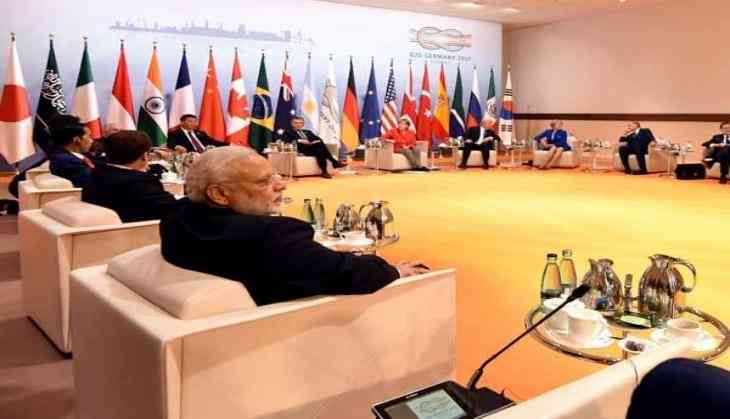
Indian Prime Minister Narendra Modi, speaking on terrorism, at the G20 Summit here presented an 11-point action agenda for counter-terrorism even as he stated the need to strengthen inter-governmental cooperation amongst the G-20 nations.
The Prime Minister, who was the lead speaker on the theme of terrorism at the Leaders Retreat, said that be it Daesh or al-Qaeda in the Middle East, Lashkar-e-Taiba, Jaish-e-Mohammed or the Haqqani network in the South Asia or the Boko Haram in Nigeria, they are all guided by the same ideology hatred and manslaughter.
Prime Minister Modi's 11-point action agenda included deterrent action against countries supporting terrorism and banning entry of leaders of such countries to the G-20 nations; exchange of suspected terrorist list among the G-20 nations and joint action against them and to simplify and expedite extradition and other legal processes.
The list further included adoption of comprehensive convention on international terrorism, implementation of United Nations Security Council resolutions and other international process, joint efforts for best practices in de-radicalisation programmes by G-20 nations and closure of terrorist financing sources through FATF (Financial Action Task Force).
He also called for the creation of an Explosive Action Task Force in the lines of FATF that could crackdown on the sources of supply of arms and ammunitions to terror outfits.
Other points included in the list were G-20 cooperation in cyber-security and to establish a mechanism for National Security Advisors on counter-terrorism in G-20 nations.
Earlier in the day, the Prime Minister attended the informal gathering of BRICS leaders in Hamburg. The Indian leader also had a conversation on a range of issues with Chinese President Xi Jinping at the gathering.
-ANI


